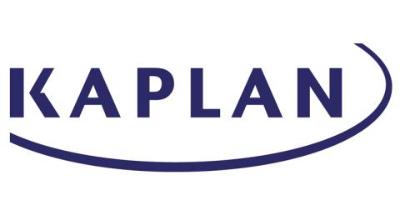An In-Depth Analysis of Donald Trump's Tax Return: A Non-Political Perspective for CPA's and Tax Professionals

During the height of tax season we thought you might enjoy a little entertainment and take a look at another tax return that has been in the news. Take a look at Donald Trump's tax returns, the way he structured his businesses using an S-Corp, LLC, C-Corp, and Revocable trusts, and much more.
As Certified Public Accountants and tax professionals, it is essential to keep updated on recent developments in tax matters. In this article, we will analyze the tax return of former President Donald Trump, which has been a subject of discussion and debate for years. This analysis is intended for educational purposes and will not delve into political matters. The focus will be on the tax strategies, deductions, and other tax-related aspects of his return.
You can view a copy of Donald Trump's 2020 returns here:
Income Sources
- Business Income: The primary source of income reported on Trump's tax return is from his various businesses. These include real estate, golf courses, hotels, and licensing deals. The Schedule C of the return reveals income and deductions related to these businesses.
- Capital Gains: Trump has reported capital gains from the sale of stocks, bonds, and real estate. Capital gains are categorized into short-term and long-term, depending on the holding period of the assets.
- Interest and Dividends: The tax return also shows income from interest and dividends earned on various investments, including bonds, stocks, and bank accounts.
- Royalties: Trump has reported royalties from his books and other intellectual property.
Deductions and Losses
- Depreciation: One of the most significant deductions in Trump's tax return is the depreciation expense. As a real estate investor, Trump has claimed depreciation on his properties, which has significantly reduced his taxable income. This is a common tax strategy used by real estate investors.
- Business Expenses: The tax return shows various business expenses that have been deducted against business income. These expenses include management fees, salaries, and other operational costs related to running the businesses.
- Net Operating Losses (NOL): Trump has reported net operating losses from his businesses, which have been carried forward to offset taxable income in subsequent years. This is a legitimate tax strategy that allows businesses to reduce their tax liability during loss years.
- Charitable Contributions: The tax return also shows deductions for charitable contributions made by Trump.
Tax Credits
- Investment Tax Credit: Trump has claimed investment tax credits for certain business investments, which have reduced his tax liability.
- Energy Tax Credits: The tax return indicates that Trump has claimed energy tax credits for investments in renewable energy projects.
Alternative Minimum Tax (AMT)
The tax return shows that Trump has been subject to the Alternative Minimum Tax (AMT), a parallel tax system designed to ensure that high-income individuals pay a minimum amount of tax. AMT disallows certain deductions and credits, which can result in a higher tax liability.
Foreign Income and Assets
Trump's tax return reveals that he has foreign income from his businesses and investments located outside the United States. He has reported this income and claimed foreign tax credits to offset taxes paid in other countries.
The tax return also indicates that Trump has disclosed foreign financial assets, as required by the Foreign Account Tax Compliance Act (FATCA) and the Report of Foreign Bank and Financial Accounts (FBAR) regulations.
This detailed analysis of Donald Trump's tax return offers valuable insights into various tax strategies, deductions, and credits used by high-net-worth individuals and businesses. It serves as an educational resource for Certified Public Accountants and tax professionals to better understand the complexities of the U.S. tax system and how certain strategies can be employed to manage tax liabilities effectively.
__
As a Certified Public Accountant, it's crucial to understand various tax strategies employed by real estate professionals, including high-profile individuals like Donald Trump, to minimize or potentially avoid paying taxes. It is important to note that while the strategies mentioned below are legal and commonly used by real estate professionals, the specifics of Trump's tax situation may vary from year to year.
- Depreciation: Depreciation allows real estate professionals to recover the cost of income-producing property over its useful life, as determined by the IRS. By claiming depreciation, real estate professionals can reduce their taxable income without incurring any actual cash expense. Accelerated depreciation methods, like Modified Accelerated Cost Recovery System (MACRS), enable taxpayers to claim a higher depreciation deduction in the early years of owning the property.
- 1031 Exchanges: Section 1031 of the Internal Revenue Code allows real estate investors to defer capital gains taxes on the sale of investment property by reinvesting the proceeds into a "like-kind" property within a specified timeframe. By executing a 1031 exchange, real estate professionals can continue to defer capital gains taxes throughout their investment careers until they eventually sell the final property without reinvestment.
- Passive Activity Losses: Real estate professionals can offset passive activity losses from rental real estate against their non-passive income if they meet specific requirements defined by the IRS. This may include spending more than 50% of their working hours and at least 750 hours per year in real estate activities. By offsetting passive losses against non-passive income, real estate professionals can reduce their overall taxable income.
- Interest Expense Deduction: Real estate professionals can deduct the interest paid on loans used to acquire, construct, or improve investment properties. This interest expense deduction can significantly reduce the taxable income generated by their real estate investments.
- Cost Segregation: This strategy involves identifying and separating personal property assets and land improvements from a real estate property, enabling real estate professionals to accelerate depreciation deductions on specific components of the property. By front-loading these deductions, taxpayers can minimize their current-year taxable income.
- Real Estate Professional Status: As mentioned earlier, if a taxpayer qualifies as a real estate professional under IRS rules, they can offset passive losses from rental activities against non-passive income. This can significantly reduce their overall tax liability, as passive losses are not subject to the limitations that apply to passive investors.
- Tax Credits: Real estate professionals may also be eligible for various tax credits, such as low-income housing credits, rehabilitation credits, or energy-efficient improvement credits, which can directly reduce their tax liability.
In summary, real estate professionals like Donald Trump can potentially avoid paying taxes by employing a combination of legal tax strategies, including depreciation, 1031 exchanges, offsetting passive activity losses, interest expense deductions, cost segregation, real estate professional status, and tax credits. These strategies enable real estate professionals to minimize their taxable income and defer taxes, sometimes indefinitely.
Share This Article
What's Trending?
Trending topics & tools for the CPA community
How Firms are Rethinking Reasonable Comp (Quick Video)
It’s a short video and makes the value of repeatable, data-backed approach clear (especially compared to spreadsheets, gut checks and one-off calculations).
Learn how 8am CPACharge delivers clarity and confidence for accounting firms.
8am™ CPACharge brings invoices, payments, and reconciliation together in a solution designed to make your day easier from start to finish.
Seniors on Social Security Could Face $460 Monthly Cut to Benefits
Jim Komoroski, RSSA®, is quoted in Newsweek, offering expert insight into the projected monthly cuts to Social Security benefits should Congress fail to act.
Resources
Valuable information provided by our sponsors.
Specialize in Social Security
Looking to enhance your retirement planning expertise? Your solution: pursue the Registered Social Security Analyst®...
CPAdirectory members have access to discounted auto and home insurance
At CPAdirectory, we think it's a good thing to provide our members with access to...
Free CPE Course: ChatGPT for Tax Pros — Limited Offer
CPAdirectory and CCH CPELink are giving you free access to the on-demand course: ChatGPT for...
PE Deals In Accounting: Valuations, Structure, Tradeoffs
In this webinar, you’ll hear from firm leaders and industry experts who will share real-world...
Stand Out as a Trusted Social Security Expert with the RSSA® Designation
Designed for CPAs, the Registered Social Security Analyst® (RSSA®) designation provides advanced training to help...
How Firms are Rethinking Reasonable Comp (Quick Video)
It’s a short video and makes the value of repeatable, data-backed approach clear (especially compared...













